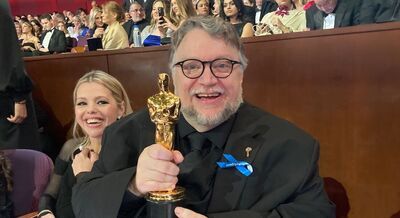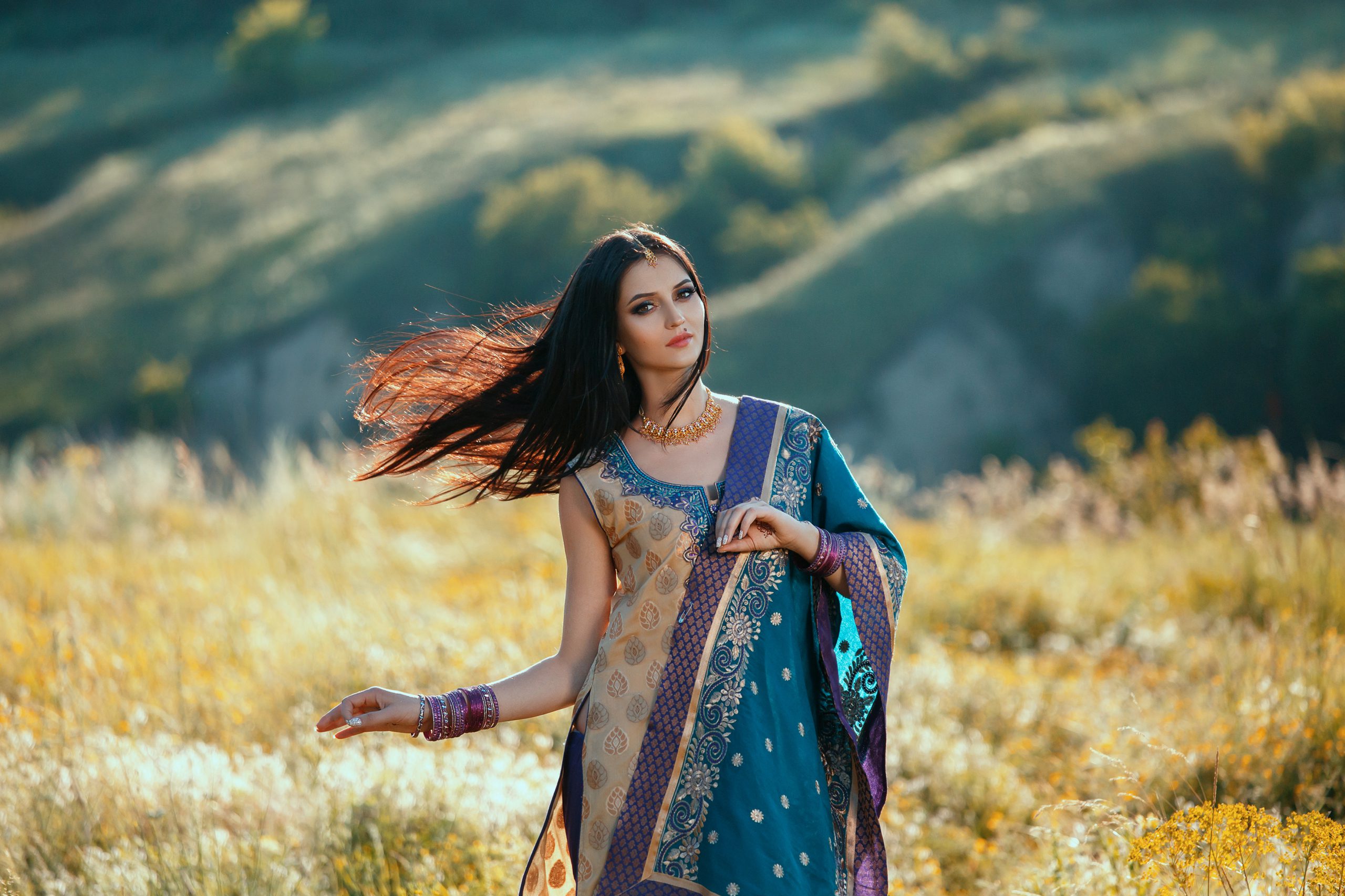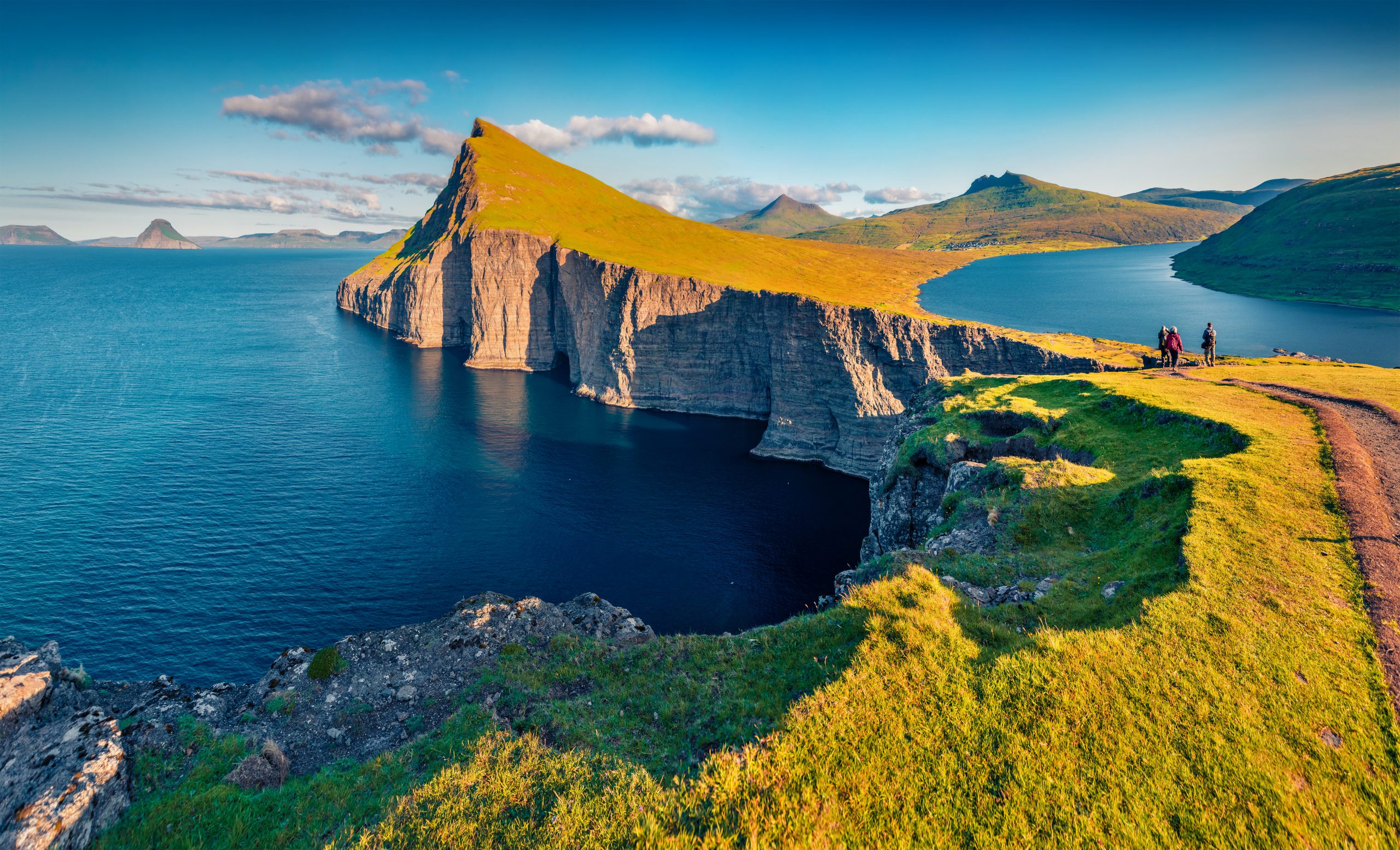
“This is a good show,” Guillermo del Toro told me inside the Dolby Theater, holding the third Oscar of his career, which he won alongside collaborators Mark Gustafson, Gary Ungar, and Alexander Bulkley for the masterful stop-motion animation “Guillermo del Toro’s Pinocchio.” “You know, it’s dignified, no stupid jokes or anything,” he jubilantly added, sharing my opinion that the 95th edition of the Academy Awards was thus far feeling like a return to a sense of earnestness and classiness after the show’s slap-tainted 94th edition last year.
After posing with his shiny new statue while sitting next to his “Nightmare Alley” co-writer (and spouse) Kim Morgan, del Toro asked me, “Do you want to hold it?” He then attempted to hand me his sparkly-gold Oscar. I hesitated at first, but in the end, who could resist? After all, this was my first time attending the ceremony as someone who’s been enthusiastically following the annual race since tweenhood, and certainly, my first time being in such close proximity to Hollywood’s top prize won by a living legend just moments ago. I picked it up in disbelief and realized what they all say is true: the thing’s kind of heavy.

Save for the sequined gown I squeezed myself into for a night of glitz and glam, everything else felt contrastingly light all night, at least in the room where it happened. That might be because most nominees in major categories and their tireless reps were seemingly prepared for a near-sweep by writer/directors Daniel Scheinert and Daniel Kwan’s “Everything Everywhere All At Once,” a multiverse saga of an Asian-American immigrant family that delivered upon those expectations, winning 7 of the 10 Oscars it was nominated for in Best Picture, Best Director, Best Original Screenplay, Best Editing, Best Supporting Actor (Ke Huy Quan), Best Supporting Actress (Jamie Lee Curtis) and finally, Best Actress (Michelle Yeoh) categories. So to some degree, the pressure has been off for a while.
During a commercial break, “Aftersun” writer/director Charlotte Wells told me all that mattered to her was the fact that her movie was in the room and a part of the festivities. “’Aftersun’ was in the opening montage!” she added, recounting her pinch-me moment. “It sank in the last couple of days that this is the end of the road, and you are really rooting for some people,” she remarked about the long and laborious campaign trail during which she met so many of the artists on the same journey. “This is a celebration.”
During another break, “Triangle of Sadness” actress Dolly de Leon indicated she, too, was having a great time at the show while also noting how different it all felt in person. “It’s perhaps not as big or grand. You know, it all looks a little different on TV.”

Indeed, things do look different on TV, but at least to this journalist, the Dolby inner workings weren’t any less impressive than the selective sheen of the telecast, with acrobatic cameras and virtually invisible cameramen and showrunners circling the orchestra section, making sure that the live broadcast went smoothly without a hitch (or, to quote host Jimmy Kimmel, “without Hitch”). And to Wells’ point, the whole evening was a disarming celebration end-to-end, with frequent cheers, gasps, and standing ovations, many of which were in favor of “Everything Everywhere All At Once.” They were, in fact, so numerous and loud that even the so-called “open” races—like the ones between Cate Blanchett (“TÁR”) and Yeoh, or Angela Bassett (“Black Panther: Wakanda Forever”) and Curtis—seemed not to be all that open after all. The support for The Daniels’ original work was vast, and not much else was in the cards, other than brief moments when I felt maybe—just maybe—that Best Picture would go to Edward Berger’s “All Quiet on the Western Front,” after the film won four Oscars across Cinematography, Production Design, Musical Score, and International Feature categories.
As I later slowly started to reclaim my senses during the Governors Ball after being overwhelmed by the sensational Hollywood make-believe on display, I realized how welcome that win would have been in a year when the spread of the Oscar-nominated movies—from blockbusters and works of veterans to smaller, riskier pictures—embodied almost everything we all say we want from cinema. The nominees represented a profound range of themes and aesthetics, but the major winners, for the most part, did not. In the aftermath of it all, “The Banshees of Inisherin,” “The Fabelmans,” “TÁR,” “Elvis,” and “Triangle of Sadness” closed the awards season with zero Oscars each. Meanwhile, one movie that concealed the superhero craze of the zeitgeist within an indie spirit claimed nearly everything.

Still, it was also hard to argue against the victories of “Everything Everywhere All At Once,” which continued the strides made for Asian representation in Hollywood. My feelings for the film aside—I admire its intentions while finding the entire package a little too much and too exhausting—it was genuinely disarming and joyous to hear Quan’s teary “Mom, I just won an Oscar,” Curtis’ “We just won an Oscar” (in support of all her collaborators), and Yeoh’s unapologetically feminist acceptance speech: “Ladies, don’t ever let anyone tell you that you’re past your prime!” During all of these moments, I couldn’t help but applaud their joy and pride. I even shed a few tears of my own, remembering that Quan’s comeback story was well-earned, Curtis had zero Oscars until Sunday night, and Yeoh became the first Asian woman (and only the second-ever woman of color after Halle Berry) to win a Best Actress Oscar.
The tears were abundant on my face throughout the night. The first few of them fell when my husband dropped me right by the carpet, thanks to a special vehicle pass that the invitees receive. After multiple searches at different checkpoints, we pulled by the tent, and a white-gloved attendant helped me out of the car and said, “Welcome to the Academy Awards!” kicking off an unforgettable experience that felt like an impossible dream. After strolling up and down the carpet—this year, in a horrendous decision, an unappealing champagne color instead of the customary red—for several hours and witnessing arrivals in all their hopeful glory, I minded the countdown and took my top-floor mezzanine seat. I stayed there for Kimmel’s successful intro monologue and the first few awards before heading out to the Lobby floor thanks to a wristband that gave me coveted access.

I spent the rest of the night away from the top mezzanine level, splitting my time between the lobby bar where the likes of Cate Blanchett, Florence Pugh, and Cara Delevingne stopped by, with the main orchestra seated close to the stage. After “Everything Everywhere” claimed the night’s biggest prize, I followed the herd to the Governor’s Ball in the same complex, helped myself to some Wolfgang Puck sushi, an Oscar-shaped salmon canapé, and a pair of chocolate Oscars among the endless buffet offerings. The crowded Ball’s hottest corner was naturally the stage where winners like Quan, Fraser, Yeoh, and Curtis got their golds engraved with their names. Across from all that was Live Action Short winner Ross White for “An Irish Goodbye,” telling me how thrilled he was to reunite with last year’s Best Supporting Actor winner Troy Kotsur backstage after meeting him for the first time at the BAFTAs. Nearby was costume designer Ruth Carter, draped in a beautiful jewel-yellow gown, barefoot and relaxed next to her second Oscar that she won for another “Black Panther” movie. “Sometimes, Academy Awards and people with Oscars can feel intimidating,” she told me. “We are in a room full of artists here, and there is a familial feeling. My favorite parts were Lenny Kravitz and Rihanna singing with her pregnant belly.”

After complimenting Kimmel on a classy night and a hosting job well done (“I’m relieved that it’s over. And it was a classy night despite my presence,” he joked) and still buzzing from a starstruck moment when Colin Farrell accidentally stepped on the train of my gown (“I’m sorry, dear,” the mensch said), I followed Ruth Carter’s example and removed my high heels and walked back on the champagne carpet barefoot. I was fully aware that my image at that moment (on a dirty-looking light-color carpet that should have been red) was a far cry from my classy and fresh-faced arrival. My last chat around the Dolby was with “The Fabelmans” star Gabriel LaBelle and his very proud mom, who said, “We will all have to go for breakfast in the morning and process all of this.”

Once I figured out a ride to the NEON party on Sunset, I was able to watch the likes of director Laura Poitras (“All the Beauty and the Bloodshed”) and Colm Bairéad (“The Quiet Girl”) dance the night away while “Triangle of Sadness” director Ruben Östlund and stars Dolly De Leon and Harris Dickinson chatted away in different corners of the venue. Perhaps the biggest thing I learned at that party (from an anonymous source very close to James Cameron) was why the high-profile filmmaker was absent at the ceremony despite the Best Picture nomination for “Avatar: The Way of Water.” No, it wasn’t because he had a grudge against the Academy due to not being nominated for Best Director. The reason was deeply delicate and a genuinely sad familial matter this critic won’t reveal out of respect for his privacy. On Hollywood’s biggest and most public night, where all cards are on the table, one should still respect matters this personal and confidential. But one thing is clear: the Oscar-night jokes at Cameron’s expense won’t age well.
When I woke up the next morning feeling elated from my experience and still exhausted, I found myself wondering whether it was all a dream. Then I noticed the Academy Awards program on the coffee table of my small Airbnb studio, and a small box with a chocolate Oscar, looking handsome as ever, winking my way …







